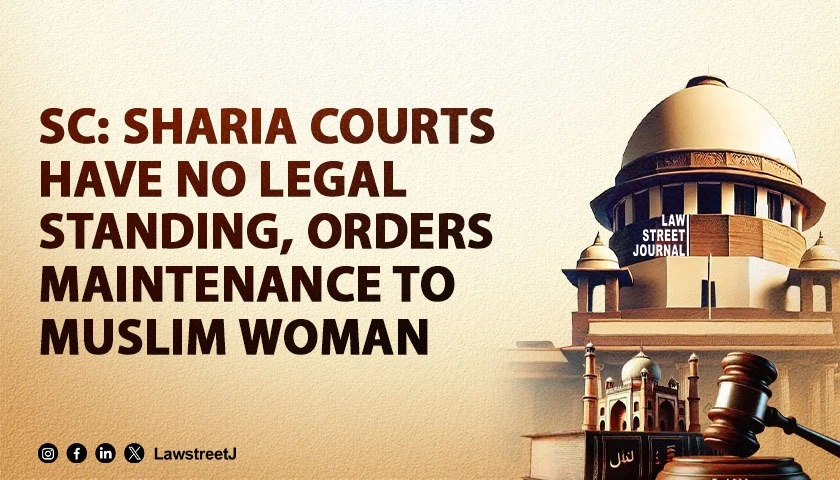NEW DELHI: The Supreme Court has held that 'Court of Kazi’, ‘Court of (Darul Kaja) Kajiyat’, ‘Sharia Court’ etc by whatever name or style have got no recognition in law.
Dealing with a plea by a Muslim woman for maintenance filed under Section 125 of the Criminal Procedure Code, a bench of Justices Sudhanshu Dhulia and Ahsanuddin Amanullah said that any declaration is not binding on anyone and is unenforceable by resort to any coercive measure.
"The only way such declaration or decision can withstand scrutiny in the eye of law could be when the affected parties accept such declaration/decision by acting thereon or accepting it and when such action does not conflict with any other law. Even then, such declaration/decision, at best, would only be valid inter-se the parties that choose to act upon/accept the same, and not a third-party," the bench said.
The court relied upon its previous judgment in Vishwa Lochan Madan Vs Union of India (2014), as it found a Muslim man initially filed a plea in a ‘Court of Kazi’ and ‘Court of (Darul Kaja) Kajiyat' seeking divorce from the wife.
Shahjahan assailed the Allahabad High Court's order of August 03, 2018 which dismissed her revision petition against the family court at Jhansi's order of April 23, 2010, denying her maintenance under Section 125 CrPC.
The family court allowed only Rs 2,500 for her two children.
The parties got married on September 24, 2002 according to Islamic customs. This was the second marriage of both.
The court said the maintenance could not have been denied to the appellant-wife under the prevailing circumstances. It directed for payment of Rs 4,000 per month as maintenance to the appellant, from the date of filing of the maintenance petition before the family court.
The appellant-woman claimed that her husband had caused cruelty to her as she was not able to fulfil his demand for a motorcycle and Rs 50,000.
To this, the family court had said that since it was their second marriage, there was no possibility of demand of dowry by the man, as he would be trying to rehabilitate his house.
"Such reasoning or observation by the family court is unknown to the canons of law and is based on mere conjecture and surmise," the bench said.
The court also said, the family court will do well, henceforth, to bear in mind the observation in Nagarathinam Vs State, through the Inspector of Police (2023) that the "Court is not an institution to sermonise society on morality and ethics".
The bench said the family court could not have presumed that a second marriage for both parties would necessarily entail no dowry demand.
The bench also criticised the family court, taking note of the 2005 compromise between the couple, opined that it was the appellant’s character and conduct which led to the rift in the conjugal life of the parties.
"This reasoning is based on the purported fact that the appellant in the compromise deed had admitted to her mistake. However, from a bare perusal of the compromise deed, it would become apparent that it records no such admission," the bench said.
The court noted the first ‘divorce suit’ instituted by the husband in 2005 was dismissed on the basis of this compromise, wherein both parties decided to live together and agreed that they would not give the other party any occasion to complain.
"Hence, the very basis/reasoning for rejecting the appellant’s claim for maintenance appears to be ex-facie unsustainable," the bench said.

















